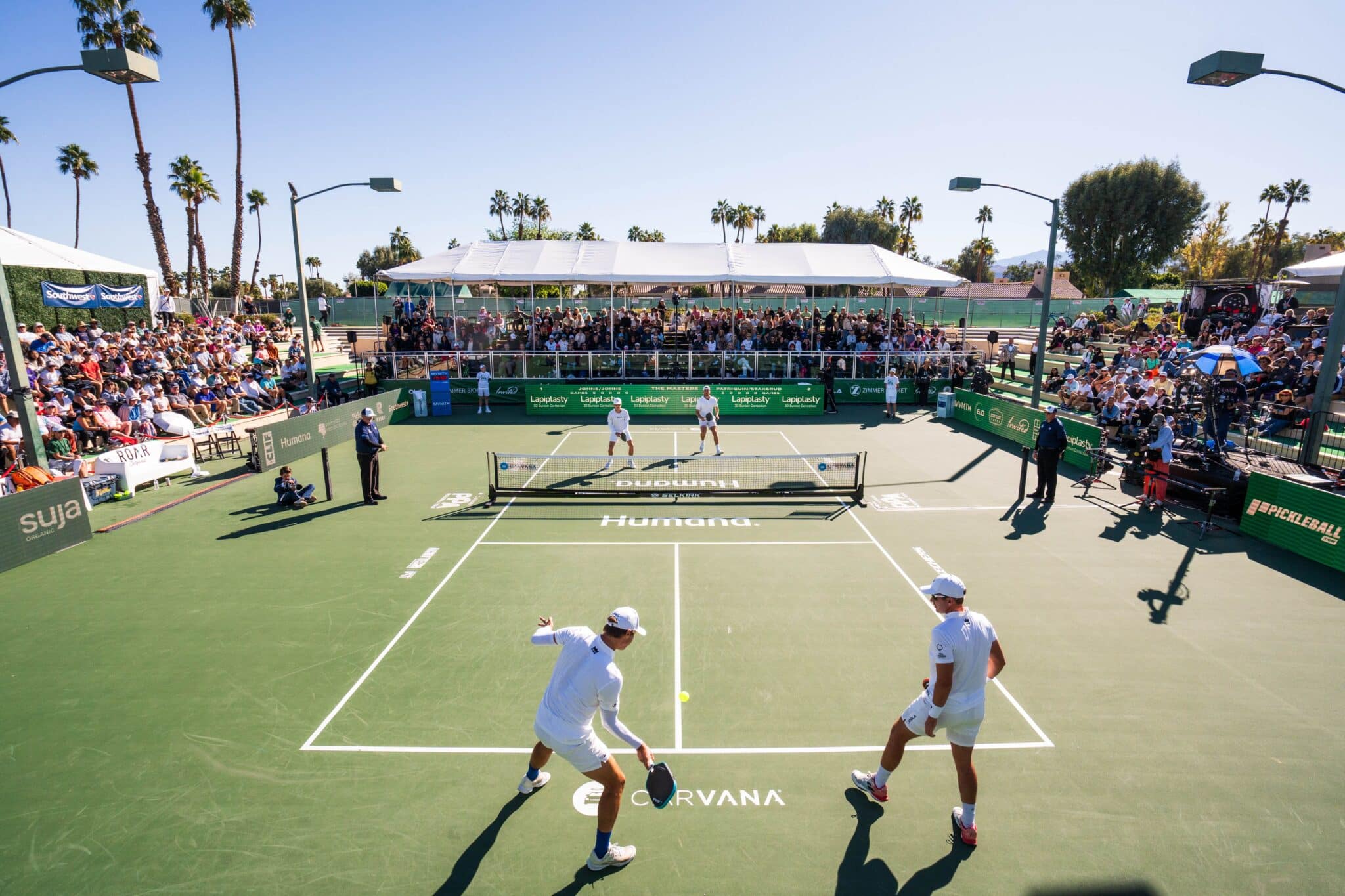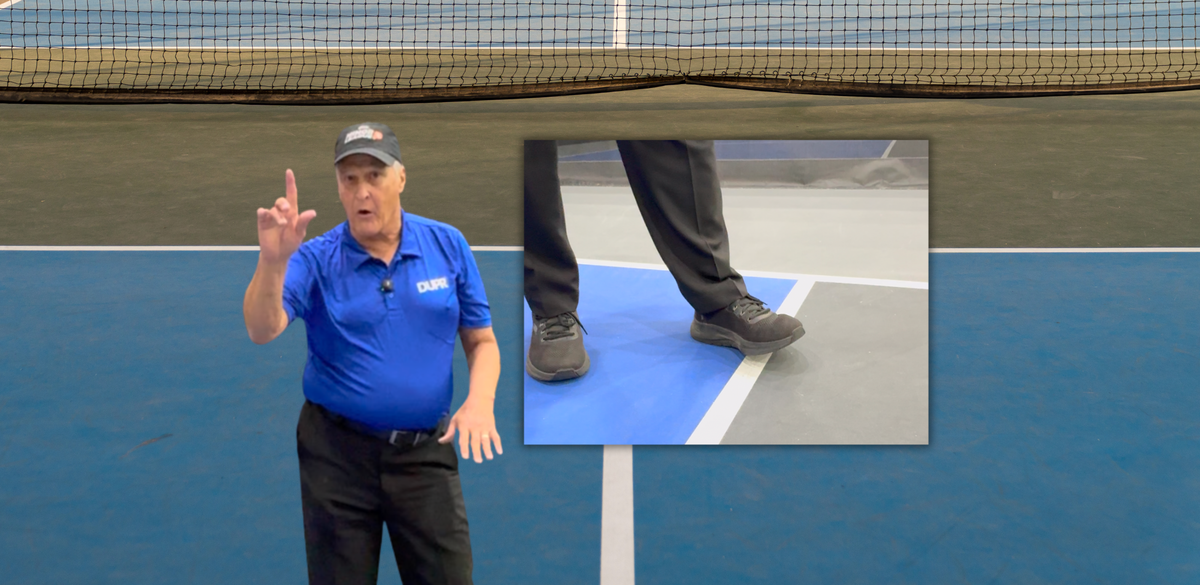Pickleball; it's more than just a game for many of us, it's a lifestyle. One that constitutes the highlight of our day, the activity that keeps us active and socially connected. But let's face it - knee pain can put a serious damper on the fun.
It's that nagging sting in your step that can turn a lively rally into a painful ordeal. Whether you're a seasoned player dealing with a knee replacement or a beginner worried about aggravating an old injury, you're not alone in this struggle.
Suppose you want to prevent, manage, or overcome knee pain while playing pickleball. Then we've got your back, and your knees too! In this article, we explore how you can do all that. We also discuss how you can slowly get back to playing pickleball after knee surgery.
How Popular Is Pickleball With Older Adults?
Pickleball is very popular with older adults. Of 36.5 million pickleball players in the US, 52% of active players are 55 or older. 32.7% of players are aged 65 or older. This may be because pickleball is less physically demanding than other sports.
You may be an active pickleball player or are keen to explore the game for the first time. However, have you ever thought about how popular the game is with older adults?
Pickleball is surprisingly very popular with older adults. If you look at official reports from the Sports & Fitness Industries report, more than half (52%) of core players are aged 55 or older. Almost one-third (32.7%) are aged 65 or older.
Core players are people who play pickleball at least eight times or more per year.
Suppose you base that percentage on a total of 36.5 million pickleball players in the US. In that case, that's easily millions of older adult players who play the sport frequently. In fact, during the pandemic alone, the sport surged in popularity. It grew 14.8% between 2020 and 2021.
Research has been conducted to explain why pickleball has become so popular. These studies showed that older adults were most motivated by competitiveness and skill mastery.
Pickleball gives both of that. Any retired or boomer may seek the next challenge or skill to pick up. They may also notice many of their friends are playing the sport, causing a build-up of desire to be competitive in the sport, and beat everyone.
The constant training, winning, losing, and retraining to win again brings so much motivation and reward into many older adults' lives. This causes older adults to be so addicted to the sport.
Aside from the motivation and competitive factor, pickleball can also help to keep older adults healthy and maintain their competitive edge. Pickleball can help keep the cardiovascular system strong and reduce the risk of joint or muscle strain.
Pickleball is also a very social sport. Pickleball is a social sport that can be played with friends and does not demand high physical fitness. This means people of all ages and physical conditions can play it.
Do You Have to Be Fit to Play Pickleball?
You do not need a high level of fitness to play pickleball. This is because the sport is low-impact. The court is small, the paddles are light, and you do not run or exert too much energy and force when playing pickleball.
There is a reason why pickleball is so popular with baby boomers and retirees. It is a sport that can keep them competitive but not take a toll on their body. In fact, pickleball started as a family-oriented sport meant to be played by family members.
First, pickleball is played on a small court. A pickleball court is about the size of a doubles badminton court, about 1.5 times smaller than a tennis court. This means players do not run around too much when playing it.
Not running around too much means you do not need to have a high level of cardiovascular fitness. You also can manage pickleball even if you have issues with mobility. Pickleball also has rules that prevent a very aggressive or fast playing style that may cause physical strain.
For example, players cannot volley inside the 'Kitchen,' a zone right after the net. This prevents players from lunging forward, trying to anticipate and smash the pickleball.
Shots must also be played with the paddle swinging up, making overhand shots, or smashes impossible. As a result, the game is played at a slower pace, reducing the fitness requirements.
Pickleball also uses simple, light gear. Unlike tennis, pickleball paddles are light and do not take much energy to swing. The ball is also light, does not bounce too high, and does not fly too fast.
You also do not need to exert much force and speed to return the pickleball shots. As a result, the sport will be easy on your hands, joints, and muscles.
Do You Have to Run a Lot in Pickleball?
You do not have to run a lot in pickleball. This is because the court is small, meaning your paddles could reach many parts of the court in only a few steps. The game is also slower in pace, meaning you can take your time and move slower to return the shots.
One of pickleball's best features is that the court is small, only the size of a badminton court. On top of that, the sport has rules that prevent it from becoming aggressive and fast.
As a result, the game pace is usually slow, with shots hit back and forth at about the pace of a tennis game. Coupled up with the small size court, you do not need to run or move much to play the game.
Many may feel relieved to hear about pickleball not needing to run too much, which means it should be gentle on old knees. But what about injured or recovering knees? Can those with surgically repaired knees play pickleball?
Knee Pain and Pickleball: Risks and Common Issues
Despite pickleball's lower fitness requirements, it is not chess. You do not just sit and move your hands. You still move around. In your eagerness to return shots and remain competitive in games, you may also overstretch and injure yourself.
Some common injuries from pickleball include elbow, fractures, or muscle strains. With older aged adults, there are also risks from joint pain, especially in the knees. Older knees may be less flexible, increasing the risk of injury during a pickleball game.
Is Playing Pickleball Hard on Your Knees?
Playing pickleball is hard on your knees, although at a lower intensity. Pickleball is less hard and demanding on your knees compared to other racquet sports, such as tennis. Common knee injuries from pickleball include sprains or meniscus, or ligamentous injuries.
When designing pickleball, the game's creators designed it in such a way that the physical requirements of the sport are low. You do not have to be very fit, but you will get a good workout from playing pickleball.
However, it does not mean pickleball cannot be hard on parts of your body. This is because, after all, you still need to move to return shots. For example, when moving to chase a ball, you may move and stop rapidly, stressing your body, such as your knees.
This means there is a risk of knee pain when playing pickleball. The good thing about pickleball is that although it can be demanding for your knees, it is not as bad as other racket sports, such as badminton or tennis.
Why Is My Knee Hurting After Pickleball?
Your knees can be in pain after playing pickleball because of injuries. Common knee injuries from pickleball include sprains or meniscus and ligamentous injuries. You should address the pain immediately by getting medical advice and treatment from a professional.
Pickleball is a sport requiring you to move around. As you try to chase the ball and return shots, you may move suddenly, moving or stopping rapidly.
These activities can be stressful to the knees and can cause issues that result in you feeling knee pain. This is even more so on older knees, with deteriorating joint, ligament, or cartilage performance.
The most common knee injuries from playing pickleball include:
-
Osteoarthritis: Osteoarthritis is probably the most common reason for knee pain amongst veteran pickleball players. It is a condition where your knees have degenerated due to aging. As the meniscus ligaments on your knees no longer perform well, stresses to your knees from playing pickle can cause pain.
-
Knee Sprains: Knee sprains may happen when your knee is twisted beyond its flexibility limit. When this happens, the ligaments become overstretched. If your knees are sprained, they should swell and leave you in some pain. You also cannot put weight on the knee.
-
Meniscus Injury: The meniscus is a piece of cartilage around your knees. Cartilage is a tough, rubbery cushion that is the shock absorber on your knees. If you twist your knees with weight on it, you may tear your meniscus.
If your knees are in pain, one of the first things to do is to stop playing the game. Put some ice on the area to prevent further swelling. Next, go straight to a medical professional to get help to ensure your knees are properly cared for.
These steps should help prevent further injury to your knees and help them recover later.
Can You Play Pickleball After Knee Replacement Surgery?
You can play pickleball after knee replacement surgery. The key is to ensure that you receive a green light from your doctor before you start playing again. It may take around three months up to a year of resting and recovery after the surgery before you can play pickleball.
Knee replacement surgery is an option, especially when your knees have deteriorated to a very bad condition. In knee replacement surgery, surgeons remove parts of the bottom of the thigh bone and replace it with an implant. The same is done with the top of the shin bone.
This means you will have a new knee, which should allow you more range of movement. Translate that into pickleball; you may just be able to play better than the others.
As you know, getting back into pickleball too quickly after the surgery isn't a great idea. You want to give your knees time to heal before you stress them hard in pickleball games.
The question now is, how long? How long do you rest before coming back to pickleball?
The general consensus is that you may want to give yourself three months up to a year of rest after knee replacement surgery before playing pickleball again. Different people heal up differently, which may explain the large gap between them.
On top of that, if you are unlucky enough, your surgery may not heal well, requiring further surgery to repair the area. This may also increase your healing time. Sometimes, you may feel like you have healed up and are ready to play pickleball. However, resist the temptation to do so but instead, ensure your doctor confirms that you can do so first.
This is because you may not have the right tools to see your knee's conditions while your doctor can. Plus. It feels better to play pickleball again when you have officially received your doctor's green light.
However, as you play pickleball, if you notice anything odd on your knees, stop. Go back to your doctor, and get it checked. It is important to take notice of how your body feels to ensure you do not create issues for your new knees.
Is It Safe to Play Pickleball with a Knee Replacement?
When your doctor allows, it is safe to play pickleball with a replaced knee. This is because knee implants are designed to be as good as your natural knee. However, listen to your body when playing pickleball, and stop if you detect something abnormal with your knees.
Generally, it is safe to play pickleball with your implant knee. This is because these implant knees are designed to allow you a good range of motion, similar to your natural knee.
However, you cannot return to pickleball right after the surgery. You will, instead, spend time getting used to your new knee. In your first few months, you will also do a lot of physical therapy to get used to your new knee.
Your doctor may allow you to re-approach pickleball with caution as you get better. Some of the ways you can slowly ease your way back to pickleball include:
-
Gradually Increasing Intensity: It helps to slowly increase the pace of your pickleball game. Start with simple drills before moving into short games on half of the court. Then gradually move into full games.
-
Invest In Proper Knee Protection: Your new knees will appreciate all the help they can get. Investing in proper knee protection gear, such as a brace, is one way to do this. Your doctor should be able to recommend a proper knee brace to support your knees.
-
Listen To Your Body: It may still be a good idea to listen and stop when something feels wrong. Get your doctor to look at your knees again and ensure all is ok before you return to playing.
However, once your doctor has given you the green light to go ahead, your replacement knees should be strong enough to handle the stresses and movements required in a pickleball game. This means you can play to your heart's content.
Tips for Preventing Knee Injuries in Pickleball
The shortest answer would be to use common sense to prevent knee injuries in pickleball. You should be the best person to know what your knees can and cannot do, and you should know how far to push it before you hurt yourself.
Aside from that, you can also apply these tips to reduce your chances of injury when playing pickleball:
-
Proper Warmup: One of the fastest ways to injure your knee is to subject it to harsh and sudden movement. Prevent this by doing some warmup exercises before you start playing. Basic knee warmup exercises include knee bends and squats.
-
Proper Footwear: Proper shoes help support your knees by absorbing some impacts. It also helps your feet to get a good grip, meaning you do not need to use your knees too much to move around. Invest in a properly fitting shoe with a good grip.
-
Proper Technique: Pickleball is designed to be played by older adults, so it should not cause knee injuries. The key is to play the game correctly. Consider hiring a trainer to correct any wrong techniques you have before they injure your knees.
-
Stay Light: When you become overweight, one of the first things that may go away is your knees since they need to support so much weight. Keep your weights down, and do not allow yourself to become overweight to protect your knees.
Stop if your knees feel funny or painful during or after a game. Get a doctor to check and attend to them to prevent the knees from worsening.
Your Knees Are Your Best Weapon In Pickleball
This article explored some of the most common questions older pickleball players have about their knees. We examined whether the sport can be hard on the knees and how players can care for their knees while playing pickleball.
You must take care of your knees while playing the sport, as a good knee will allow you to enjoy playing the game for years to come. Plus, a strong knee helps you to return that cunning shot your opponent gave you and win the game.
Always stretch your knees and perform warmup drills to prepare your body for a game. This way, your body and knees will not be shocked by sudden explosive moves that may cause injuries.
Also, remember to give yourself time to recover after knee replacement surgery before playing again. If you find our content helpful, subscribe to our newsletter now. Once you sign up, you will be updated with more articles like this one when they come out.
Anuncie Aqui / Advertise Here
Sua marca para o mundo Pickleball! / Your brand for the Pickleball world!

 English
English  Spanish
Spanish  Portuguese
Portuguese  German
German  Italian
Italian  Japanese
Japanese  French
French  Polish
Polish  Russian
Russian  Netherlands
Netherlands  Hungarian
Hungarian  Turkish
Turkish  Videos
Videos 








 English (US) ·
English (US) ·  Portuguese (BR) ·
Portuguese (BR) ·